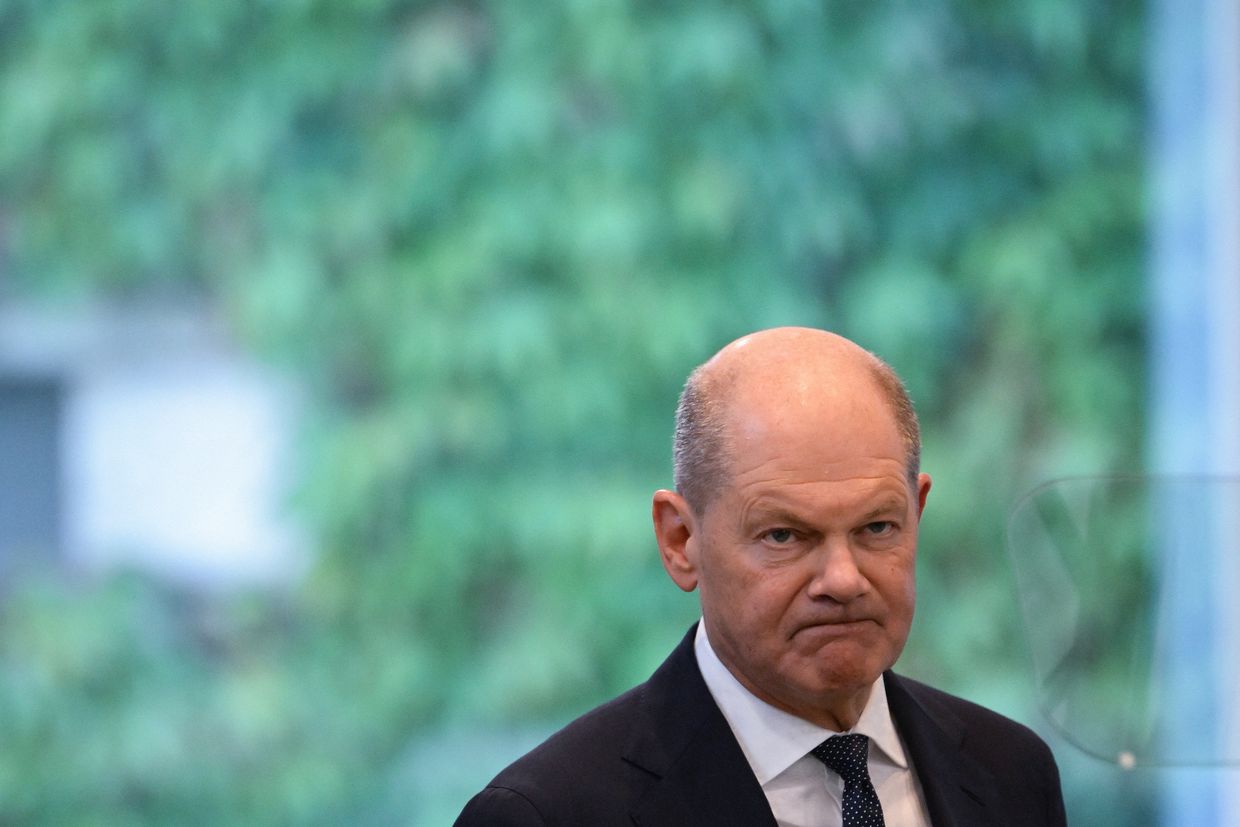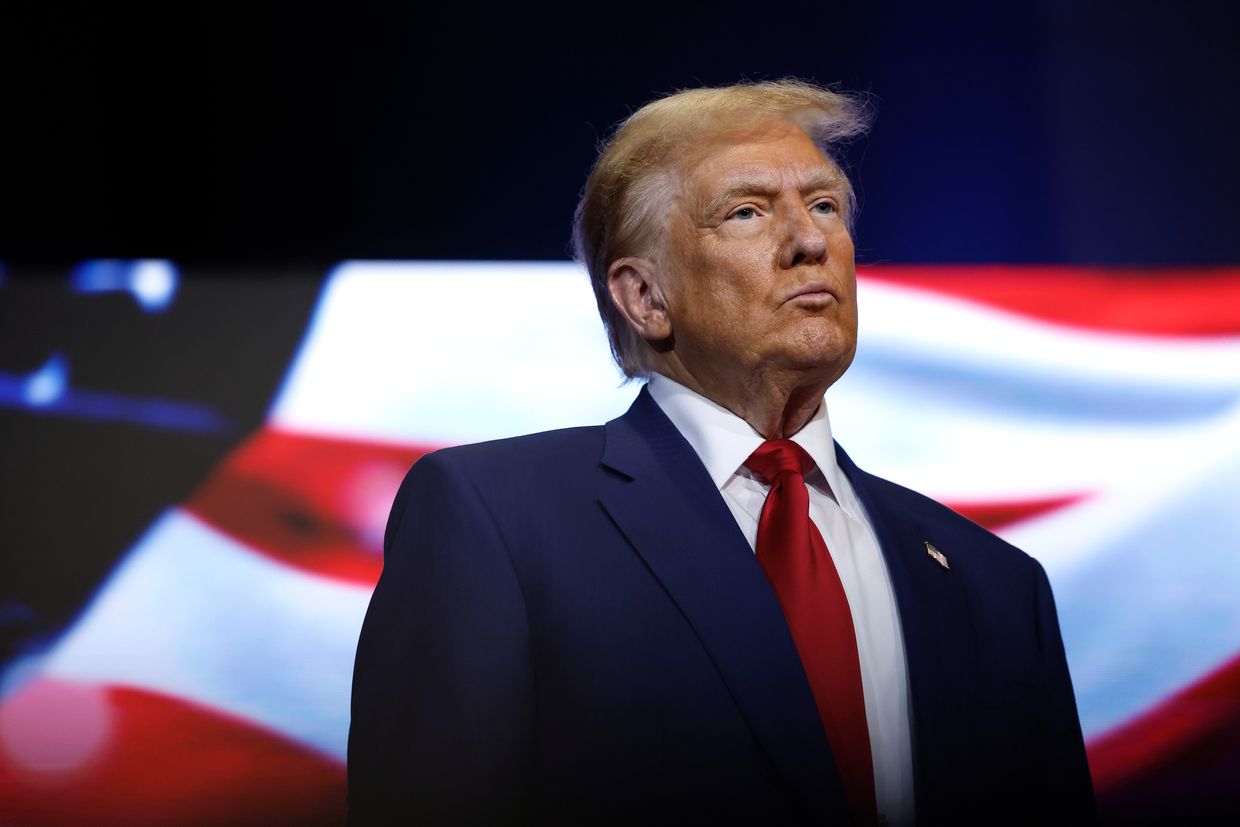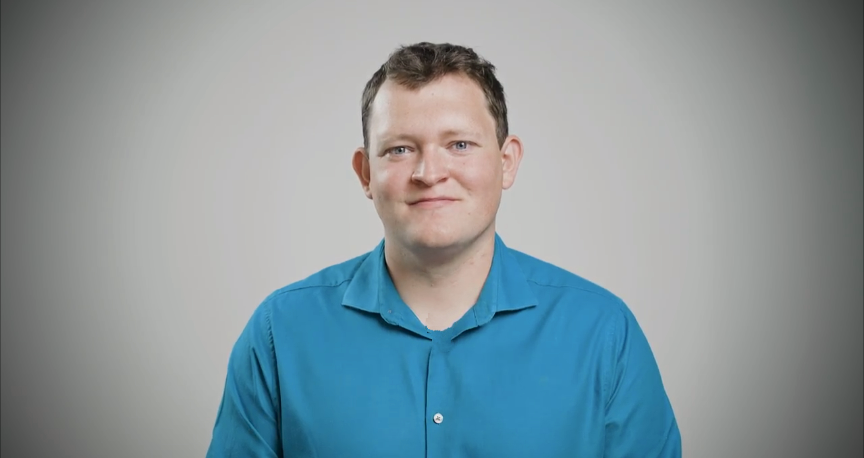Speaking to CNN on May 10, Peskov commented on the latest ceasefire proposal from Ukraine and Europe, responding that Russia needs to "think about" it, but is "resistant" to pressure.
Speaking at a press conference in Kyiv on May 10, President Volodymyr Zelensky rebuked the idea of a demilitarized zone in the war and emphasized the importance of first securing a ceasefire.
"We agreed that a full and unconditional ceasefire must begin on Monday, May 12, for at least 30 days. We jointly demand this from Russia, and we know we are supported in this by the United States," Zelensky said.
The announcement follows mounting fears that the two nuclear-armed countries were on the brink of engaging in another full-scale war.
Ukrainian media outlet ZN.UA reported on May 10 that their law enforcement sources confirmed an ongoing probe by the National Anti-Corruption Bureau into suspected embezzlement, money laundering and bribery.
Iran is preparing to send Russia Fath-360 short-range ballistic missile launchers, Reuters reported on May 9, citing Western security and regional officials familiar with the matter.
"Ukraine and all allies are ready for a complete unconditional ceasefire on land, in the air, and at sea for at least 30 days, starting as early as Monday," Ukraine's Foreign Minister Andrii Sybiha wrote.
U.S. President Donald Trump has acknowledged in private that Russia is difficult to negotiate with because they "want the whole thing," referring to Ukraine, the WSJ reported, citing sources familiar with the comments.
The visit marks Merz’s first trip to Ukraine, and the first time all four leaders have travelled there together.
A notice about the airspace closure was published on the U.S. Defense Department's NOTAM (Notice to Airmen) website on May 10, as cited by Ukrainian defense news outlet Militarnyi.
"As in the past, it is now for Russia to show its willingness to achieve peace," the EU's statement reads.
Kremlin spokesperson Dmitry Peskov rejected the idea of a 30-day ceasefire between Russia and Ukraine, claiming in an interview with ABC News on May 10 that it would be "an advantage" for Ukraine.
Germany's governing coalition collapses as Scholz fires Finance Minister

Germany's three-party governing coalition collapsed on Nov. 6 after German Chancellor Olaf Scholz announced that he had dismissed Finance Minister Christian Lindner.
The decision to fire Lindner over economic disagreements will likely propel the country into a snap election in the near term, as it is unlikely that Scholz's Social Democratic Party (SDP) will have enough votes to pass next year's budget.
In his statement following the dismissal, Scholz partly justified the decision by noting that he had asked Lindner to relax spending rules to allow increased aid for Ukraine, but Lindner refused.
"All too often, Minister Lindner has blocked laws in an inappropriate manner," Scholz said. "Too often he has engaged in petty party-political tactics. Too often he has broken my trust."
German media reported last week that Lindner's proposed policy paper called for significant changes to the country's economic policy, including reducing regulations on climate policy to stimulate economic growth as well as proposing tax cuts — in deep contrast with Scholz.
Political instability in Berlin may spell trouble for Kyiv amid the rise of the far-right Alternative for Germany (AfD) party — known for its amicable views toward the Kremlin — who has continuously called for cutting funding for Ukraine.
Under the current ruling coalition, Berlin allocated 7.6 billion euros ($8.2 billion) in military assistance for Kyiv in the 2024 budget.
Scholz previously said in June that the decreasing popularity of the SDP is in part connected with voters' opposition to the party's support for Ukraine.
SPD suffered a bruising loss in the elections for the European Parliament earlier in June, coming in third place, behind the center-right Conservative Christian Union-Christian Social Union (CDU/CSU) and far-right AfD.
Following the vote, Scholz said that many voters do not agree with the government's support for Ukraine and sanctions against Russia, which is "also reflected by the election results."
Scholz added that a confidence vote will be held on Jan. 15, potentially setting the stage for a early March election.
Lindner, a member of the Free Democratic Party (FDP), has consistently seen polling that insists that the FDP will not make the five per cent threshold for support needed for the party to make it into the German parliament in the next election, Politico reported. The coalition's collapse marks an opportunity for the FDP to break with the ruling government on a number of key issues.
Initially criticized for its sluggish delivery of military aid to Ukraine following the beginning of the full-scale invasion, Germany has become the second-largest provider of military equipment after the U.S.
In October, Scholz revealed that Germany had delivered a package of aid for Ukraine worth 600 million euros ($660 million), which included a fifth IRIS-T medium-range air defense system, armored vehicles, tanks, howitzers, ammunition, and drones.

Most Popular

After 3 years of full-scale war in Ukraine, Europe announces plan to ban all Russian gas imports

Ukraine, Europe's ceasefire proposal includes US security guarantees, no recognition of Crimea, Reuters reports

Journalist Roshchyna's body missing organs after Russian captivity, investigation says

After Russia's deadly attack on Kyiv, Vance reposts denunciation of Zelensky

Ukrainian sea drone downs Russian fighter jet in 'world-first' strike, intelligence says
Editors' Picks

How medics of Ukraine’s 3rd Assault Brigade deal with horrors of drone warfare

As Russia trains abducted children for war, Ukraine fights uphill battle to bring them home

'I just hate the Russians' — Kyiv district recovers from drone strike as ceasefire remains elusive



